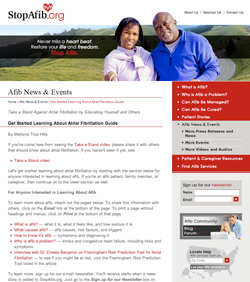
Whether you're an atrial fibrillation patient or caregiver, or are just interested in learning more about afib, check out the new Get Started Learning About Atrial Fibrillation Guide at StopAfib.org. You'll find a wealth of information, including: what afib is and the problems it causes, including stroke and congestive heart failure information about an afib …
Read More


